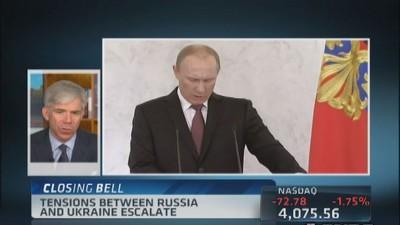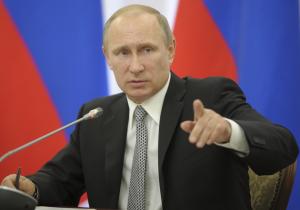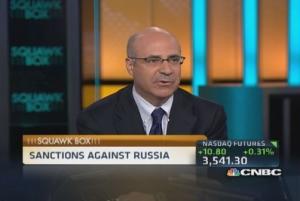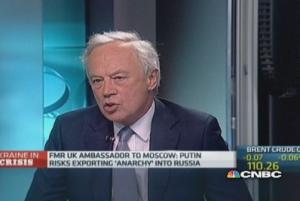Putin Divulged His Plot to Reunify the USSR Years Ago
Russian President Vladimir Putin has never hidden his nostalgia for the days of the Soviet Union. He worked as a spy at the KGB, lamented the end of communism, restored lyrics chosen by former Soviet Premier Joseph Stalin to the Russian national anthem, and marshaled Soviet-style military parades in Moscow. He’s even restarted a national fitness program founded by Stalin.
The program, which began in the 1930s, would "pay homage to our national historical traditions,” Putin said in March.
His most direct praise of the old Soviet Union came in 2005, when he shocked the west in a speech to the Russian people. He told them that the end of the USSR was essentially a mistake.
"Above all, we should acknowledge that the collapse of the Soviet Union was a major geopolitical disaster of the century,” Putin said in an address to the Russian people. “As for the Russian nation, it became a genuine drama. Tens of millions of our co-citizens and co-patriots found themselves outside Russian territory. Moreover, the epidemic of disintegration infected Russia itself."
This speech shows that nearly a decade ago, Putin was planting the seeds of his current actions in Ukraine by referencing Russians who he claims are stranded in former Soviet bloc states. Since the invasion of Ukraine, he has repeatedly said that he would protect the interest of Russians and Russians speaking people outside of the Soviet Union.
It also shows that there are more parallels between Putin and former Soviet leaders like Stalin and Nikita Khrushchev than liberal reformers in Russia and Europe would like to believe. Putin’s actions in Ukraine show that he is proceeding along the lines of many other Soviet leaders.
Here are three ways Putin is following in the footsteps of Soviet leaders.
1. He’s targeting countries where he’s not wanted. Even as pro-Russian supporters continue their assault on government institutions in eastern Ukraine, it’s clear that the public is not behind them. Recent polls show antagonism for Putin and his actions across Ukraine, including in the east. Reports over the weekend also indicated dwindling support for the Moscow-backed protestors causing havoc in Donetsk and Slovyansk.
This public opposition hasn’t stopped Putin from using Cold War-era subversion tactics to undermine the Kiev-based government ahead of next month’s elections. Soviet leaders and pro-Soviet leaders within the Eastern Bloc did the same thing during the Cold War; despite their unpopularity in places like Prague and Budapest, they were able to keep the populace under relative control through subversion and heavy-handed policing.
During the rare times when people rose up against the Soviet Union, force was used to squelch it, most notably in Prague in 1968. Putin has already laid the groundwork for similar action, saying that any instability caused by pro-Ukraine sympathizers in Eastern Ukraine would result in military action by the Russian military, which is already massed at Ukraine’s border.
2. He’s ignoring the economic damage his actions are causing his country. The United States and its European allies are expected to levy new sanctions at Russia tomorrow, further damaging an economy that has already taken a severe beating since the beginning of the crisis. However, Putin has given little indication that he would retreat even as the Russian economy suffered.
The same thing happened during the Cold War. As capitalism grew around the world, the Soviet economy, disconnected from globalization, quietly rotted from the inside out. When it finally collapsed, it became clear that the power the USSR was projecting was largely a myth.
3. He’s using bravado to cover up Russian weakness. Russians love a powerful leader; that’s why Putin continues to be so popular among Russians, even though they’re suffering economically because of his actions.
Soviet leaders like Stalin did the same thing. They used personal charisma and displays of Soviet might, including military parades that Putin is so fond of to project a false sense of power.
However, unlike Stalin, Putin’s bravado will eventually not be enough to overcome the reality of Russian economic ties to the West. Russian businesses are engaged in commerce with countries around the world; punishing them means that the Russian public also suffers.
“Stalin did not have to worry about any of these problems,” said Edward Goldberg, a professor at Baruch College and the New York University Center for Global Affairs. yahoo news






No comments:
Post a Comment